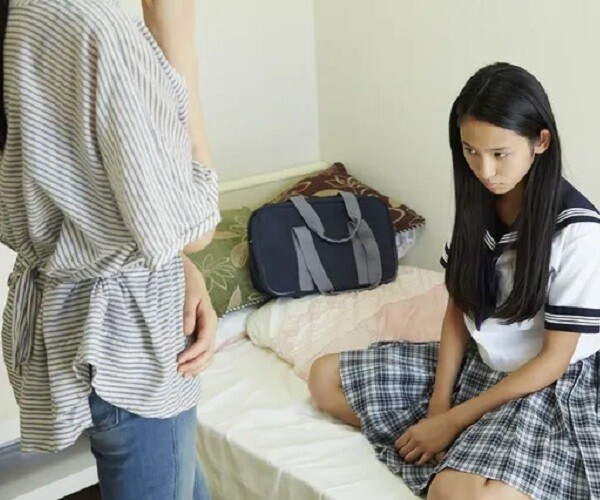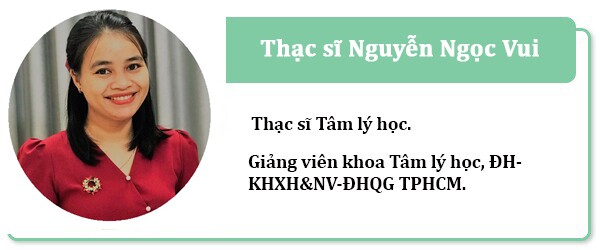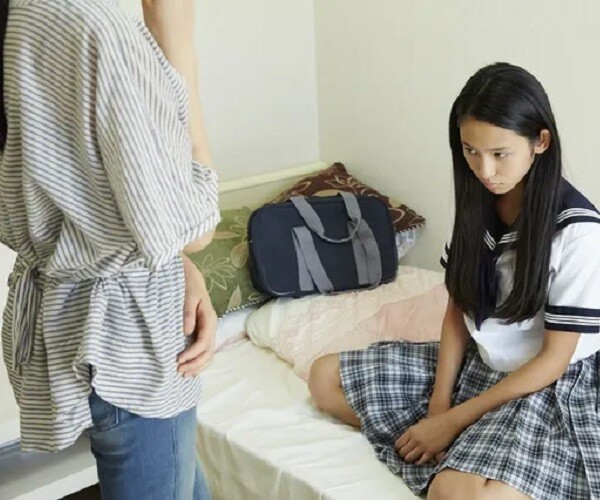## The Impact of Privacy Invasion on Children’s Development and Family Relationships
Privacy invasion is a delicate issue that can strain family relationships and hinder children’s psychological development. It is crucial to understand the negative consequences and take proactive steps to foster a safe and open communication environment.
Everyone, including children, needs a safe space to express themselves freely. When children feel that their private thoughts and emotions are not respected, it can lead to disappointment, hurt, anxiety, and a withdrawal from open communication with their parents.

Illustration.
Children are often sensitive to the opinions of others, and having their private thoughts and feelings exposed can create immense pressure, discouraging them from sharing their innermost thoughts with their parents.
To prevent these negative consequences, parents should focus on establishing an open and trusting communication environment. Set a clear rule that journals and personal spaces are off-limits and that any invasion of privacy will not be tolerated. Instead, encourage children to share their emotions and thoughts freely, creating a safe space for expression.
Let’s hear from

Psychologist
How might a child’s discovery of their parents reading their journal or sharing their secrets affect their relationship?
I have personally experienced this situation, and it left a traumatic impact on me that persists to this day. It instilled a sense of insecurity and violated my sense of safety.
From a psychological perspective, children in such situations often experience shock, embarrassment, distress, and a sense of violation.
The impact on the parent-child relationship depends on various factors, including the child’s age, the nature of the journal contents, and the parents’ intentions for reading it.
Regardless of the justification, the act of invading privacy without permission makes children feel disrespected. They may become distant, aggressive, or even hostile toward their parents. Some children may choose to forgive, but the underlying trust in the relationship will be diminished.

How might the loss of trust during childhood affect the child’s future relationships with others?
Trust issues tend to spill over into other areas of life. When children don’t feel safe and trusted within their family, they may find it challenging to establish trust with others, including friends, romantic partners, and colleagues.
From my own experience, after discovering that my parents had read my journal and used it to embarrass me, I stopped writing in it for a while. Journaling was my outlet for expressing emotions, and the violation of my privacy felt devastating. It took time and a more mature perspective for me to regain the trust to resume journaling.
For children, the loss of trust can stifle their emotional expression and impact their perception of the world around them, affecting their relationships and behavior in the long run.

How should parents understand and respect their children’s privacy within the family environment? What boundaries should be set for both parents and children?
It’s important to acknowledge that not all Vietnamese families embrace modern and open attitudes. Traditional beliefs often give parents the perception that they have the right to supervise and control various aspects of their children’s lives.
This mindset can make children feel confined and disrespected. Even young children deserve to have their basic privacy rights respected. As a psychologist, I always emphasize the importance of privacy and confidentiality in my practice.
The fundamental boundary that parents should adhere to is respecting their children’s personal space and possessions. For example, even if a child is three or five years old and sleeping in their own room, parents should still knock and ask for permission before entering.
When it comes to journals and personal thoughts, parents need to be especially vigilant about respecting these boundaries.

What are some ways to encourage children to share with their parents without invading their privacy?
– Start with sincerity: Demonstrate genuine care and concern for your child’s well-being.
– Create personal spaces: Ensure that each family member has their own private space.
– Foster open communication: Encourage open-ended questions like, “How are you feeling today?” “What made you happiest today?” or “Is there anything you’re disappointed or upset about with me or your other parent?”
Listen attentively and refrain from offering advice prematurely. Listening goes beyond hearing words; it’s about understanding and empathizing with your child’s experiences. When children feel truly heard, they are more likely to share. Sometimes, they just need someone to understand without necessarily providing solutions.
Engage in fun activities together, such as art projects, games, or even a simple walk. These moments of joy create a relaxed atmosphere that may encourage children to open up without feeling pressured.
The Unexpected Guest: Why Welcoming Strangers Can Bring Abundant Wealth
The guest arriving at the house brings with them a foretaste of good fortune, and so the host must pay heed to their hospitality. It is imperative that the host ensures their guest feels welcomed and valued, for their presence portends prosperity and success. A warm and gracious welcome sets the tone for a fruitful and auspicious visit, fostering a positive and enduring impression.
Unveiling the 6 Ultimate Tips for a Healthy and Happy Toddler’s Appetite this Tet Holiday
The Lunar New Year is a time for family reunions, but it can also be a challenge for parents to ensure their children maintain a balanced and nutritious diet. With the festivities in full swing, how can parents ensure their little ones eat well, stay healthy, and avoid common illnesses during this busy time?





































